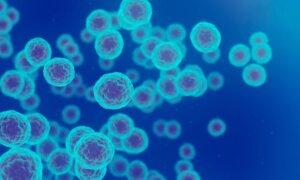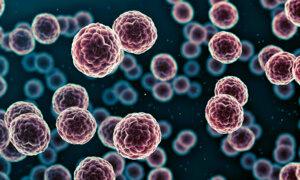Unearthing the Data
Long celebrated for their vision-enhancing beta-carotene, carrots are now in the scientific spotlight for a more compelling reason—a potential role in cancer prevention.In addition to tracking the number of carrots people ate, the study measured the amount of alpha-carotene, a nutrient related to the better-known beta-carotene, in people’s blood.
From Kitchen Staples to Cancer Shield
The research narrative around carrots and beta-carotene is evolving. This study places new emphasis on polyacetylenes, compounds less known but equally potent in the cancer battle. Noted for taming inflammation—a key factor in cancer development—polyacetylenes present a promising avenue in cancer prevention.The study’s inspiration stems from Korean research on ginseng and its anti-cancer polyacetylenes, says Kirsten Brandt, study author and an expert in phytochemistry and plant breeding. “The same polyacetylenes occur in carrots,” she told The Epoch Times.
Robin Mesnage, a noted expert in cellular and molecular biology focusing on nutrition, sheds light on the nature of some of carrots’ essential compounds. “Polyacetylene and isocoumarins, responsible for carrots’ bitter taste, primarily serve as the plant’s defense against pathogens, not initially for our benefit but to protect the plant itself,” he explained to The Epoch Times.
These substances, often perceived as undesirable due to their bitterness, are, in fact, potent antioxidants, acting as a shield against cellular damage caused by aging and stress in humans.
Practical Tips for Incorporating Carrots Into Your Diet
Looking to add more carrots to your meals? Ms. Brandt suggests aiming for about five servings per week, or 400 grams in total (roughly equivalent to five large carrots), to reduce the risk of cancer by 20 percent If that goal feels too ambitious, eating half that amount still offers considerable health benefits.To keep your carrot dishes fresh and enticing, Mr. Mesnage recommends embracing variety. “Both raw and cooked carrots have their own benefits,” he says. Add a creative twist by experimenting with different dressings, oils, and spices like cumin, ginger, thyme, rosemary, or nutmeg, which enhance flavor and offer additional health perks, he added
- Cooking carrots triples the amount of carotene your body can use compared to when you eat them raw.
- Mashing carrots into a puree helps release more carotene.
- Adding a little fat, like oil in a salad, helps your body absorb more of the healthy nutrients from the carrots.
As the research unfolds, it’s clear that carrots, along with their vegetable cousins like celery and parsley, could be key players in a dietary strategy against cancer.
Mr. Mesnage points out that individual reactions to carrots can differ significantly. He and his colleagues are studying this phenomenon, focusing on the intricate relationship between our diet and gut microbes. His work explores how these microbes influence our body’s response to nutrients like polyphenols in foods, emphasizing that the health benefits we derive from our diet are highly personalized.
The researchers are optimistic yet cautious: “Our findings are promising, but there’s much more to explore.” So next time you bite into a carrot, remember, more than a mere snack—it might just be a small but mighty shield against cancer.


